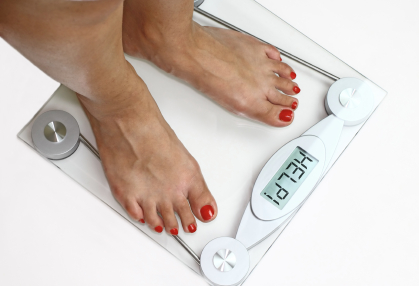Yikes! Are You at Risk of Gaining Two Pounds a Week?
The simplest way to avoid weight gain and/or start losing weight may be a good night’s sleep — because yes, lack of sleep triggers weight gain!
For years researchers and the fitness industry have known that adults who get less than five or six hours of sleep per night are at higher risk of weight gain and struggle more with weight loss. However, a recent study performed by the University of Colorado and published by the New York Times found that participants restricted to five hours of sleep per night gained an average of two pounds by the end of one week. Yikes!
What were some of the reasons for the immediate weight gain? Light sleepers not only consumed more calories while they were awake, they also shifted what and how they were eating. Researchers found that the sleep deprived participants overate carbohydrates (causing water retention); ate smaller breakfasts; and snacked a lot more after dinner. In fact, they ended up eating more calories during after-dinner snacking than any other meal of the day!
How do you know you’re getting enough sleep?
While the amount of sleep an individual needs can vary from person to person, the average adult needs approximately 7-9 hours of sleep per night to remain productive, healthy, and happy.
Eight tips for getting a better night’s sleep:
1) Exercise! Studies have shown that 30 minutes of moderate exercise (like brisk walking) per day can help you sleep better.
2) Ban the blue light! Turn off or cover any blue displays in the bedroom. Short waves of blue light may interfere with your sleep.
3) Eliminate the back pain. Back pain may not wake you up at night, but it can impact the quality of your sleep. Place a pillow between your knees when sleeping on your side to stabilize the hips and ease back pain. If you are a back sleeper, place a pillow under your knees.
4) Watch the caffeine! Coffee in the morning is fine for most people, but caffeine after noon can interrupt the deep stages of sleep. If you know that’s you, give yourself a cut-off time for caffeinated drinks.
5) Snack wisely! Per Web MD, complex carbs and dairy are sleep inducing foods. Choose snacks like cereal and milk or cheese and crackers if you are eating before bedtime. Just make sure to stick to single servings and finish your snack an hour before bedtime says Web MD.
6) Get a night light! Put a night light in your bathroom just in case you need to get up and use it in the middle of the night. Avoiding the bright light will help you get back to sleep easier.
7) Wind down. With all of the stimulation we’re exposed to throughout the day, it’s no wonder people have a tough time getting to sleep. Try things like reading, praying, meditating, listening to music, stretching, or taking a hot bath an hour before bedtime to help you get the zzz’s you need.
Not sure you can spare an hour? Start with a ten minute “wind down” period before bed. Even ten minutes can help!
8) Schedule a check up. Some medical conditions can affect your sleep. So if sleeplessness persists, make sure to schedule a check up and discuss the lack of sleep with your doctor. Then the two of you can come up with a plan to help you get the healthy amount of sleep you need.
Getting good sleep is a simple yet critical step to avoid weight gain and keep you on track with your weight loss goals!
Have a question or a comment? Please leave it below for me in the “comment” section. I love to hear from you!
To your good health!
Jennifer



